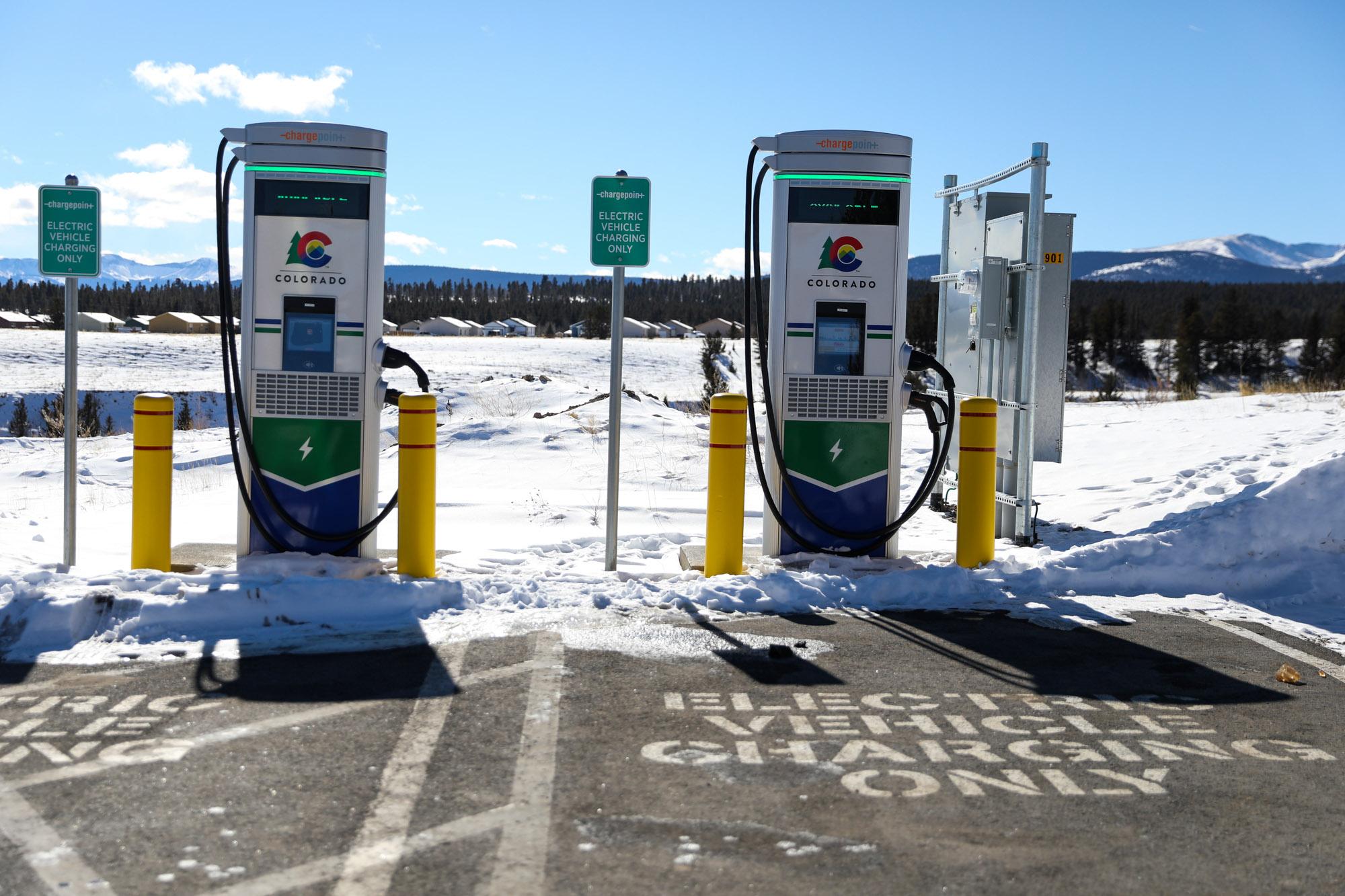
It’s official: Colorado has the country’s most generous electric vehicle tax credit available to all residents.
On July 1, the state’s incentive jumps from $2,000 to $5,000 for any electric vehicle with a starting price of less than $80,000. Data from the U.S. Department of Energy show that’s larger than any state-level discount on battery-powered cars.
Anyone interested in a lower-priced electric vehicle, like a Nissan Leaf or Chevy Bolt, may want to wait before heading to a dealership, however. To further encourage a shift away from fossil-fuel vehicles, the same law includes an additional $2,500 credit for electric cars under $35,000, but it doesn’t kick in until 2024.
Christian Willis, the managing director for Transportation and Fuels at the Colorado Energy Office, said that additional rebate is meant to help ensure electric cars aren’t luxury items reserved for high-income residents.
“It’s also going to lead to more purchases of smaller electric vehicles, which helps to extend the critical materials needed to manufacture EV batteries,” Willis said.
Gov. Jared Polis approved the expanded tax credit by signing HB23-1272. Along with funding to nudge electric car adoption, the law includes a suite of new incentives for heat pumps and e-bikes to help shift the state away from fossil fuels and towards its climate goals.
By offering a more generous credit, the state hopes to build on Colorado’s recent momentum of increased electric vehicle sales. Recent data from the Colorado Auto Dealers Association show that 10.5 percent of all cars sold in the state were electric, a three-fold increase from just three years earlier.
One factor that’s driven the rise in sales is the federal $7,500 rebate on electric vehicles. The Inflation Reduction Act, signed by President Biden in 2022, renewed the credit with new restrictions to encourage carmakers to use domestic supply chains to build cars and batteries. That means many electric vehicles no longer qualify.
In March, Gov. Polis said he was concerned it could take years for carmakers to shift their operations in response. The state’s expanded credit is designed to ensure Colorado consumers don’t lose interest in the meantime.
Additional rebates could soon be available for low-income residents. In August, the state will launch a program to offer a $6,000 discount on the purchase of a new electric vehicle or $4,000 off a used vehicle — if buyers give up an older or high-emission model. Applicants must meet one of a number of income qualifications to be eligible.
Xcel Energy, Colorado’s largest power provider, also has offered a $5,500 discount on new electric car purchases for low-income customers. In the past, it hasn’t been available for anyone who’s claimed the state rebate, but the company recently asked utility regulators to lift the restriction starting next year.
All those rebates and discounts add up to a staggering figure: $26,500.
It’s unlikely anyone could claim the full amount due to the various income restrictions and the details of the federal rebate, but Willis says it’s not out of the question.
“It’s possible, but a lot of things would have to add up just perfectly,” Willis said. “The idea here, of course, is to ensure all Coloradans can benefit from the transition to electric vehicles.”









